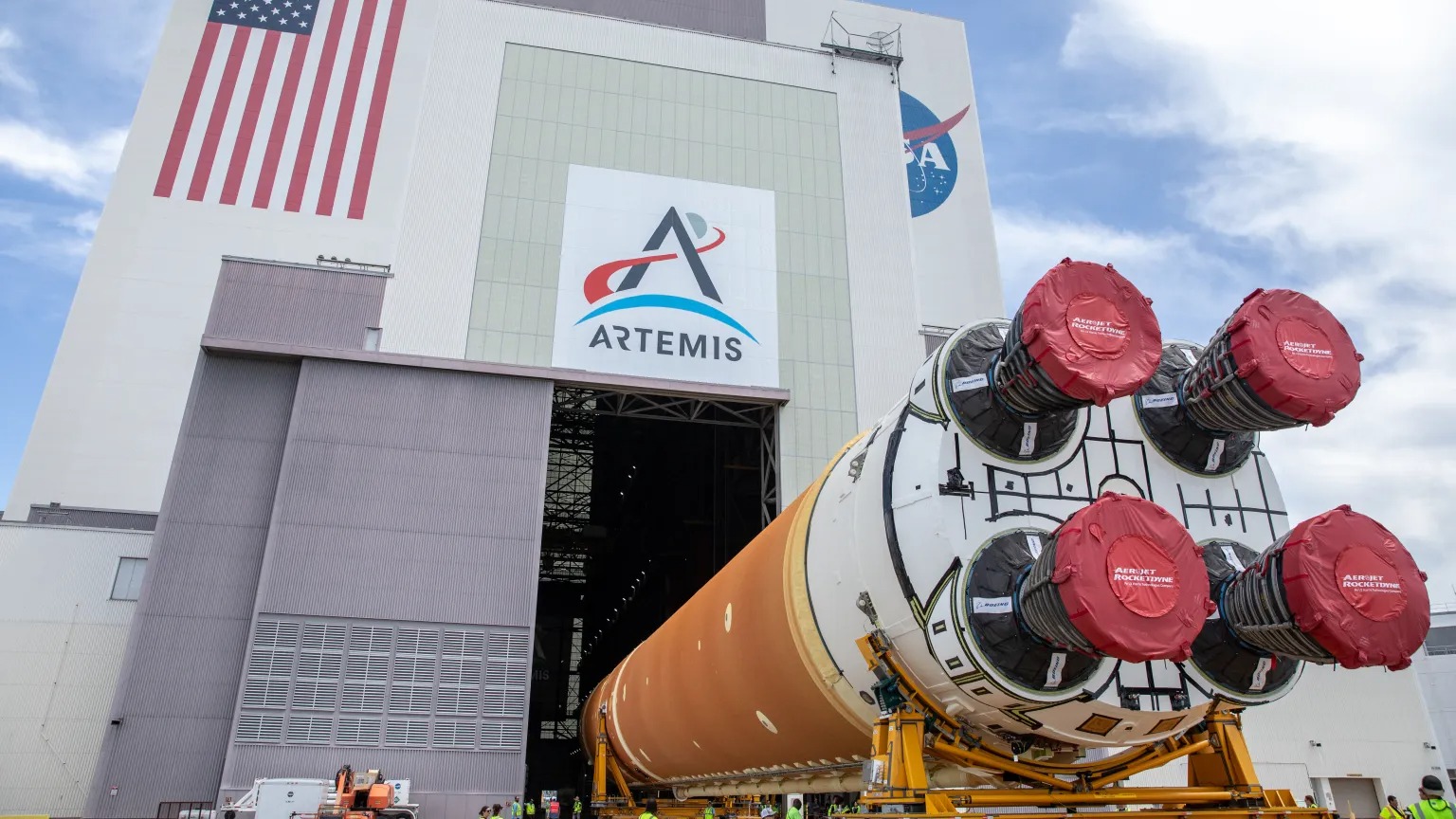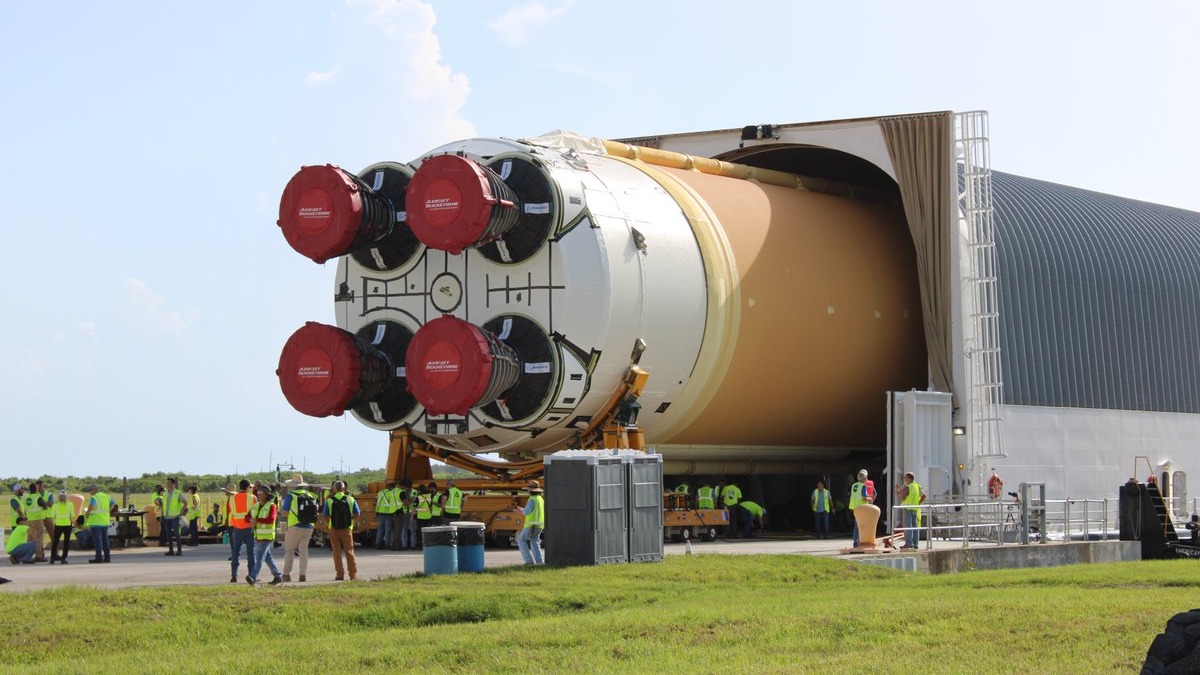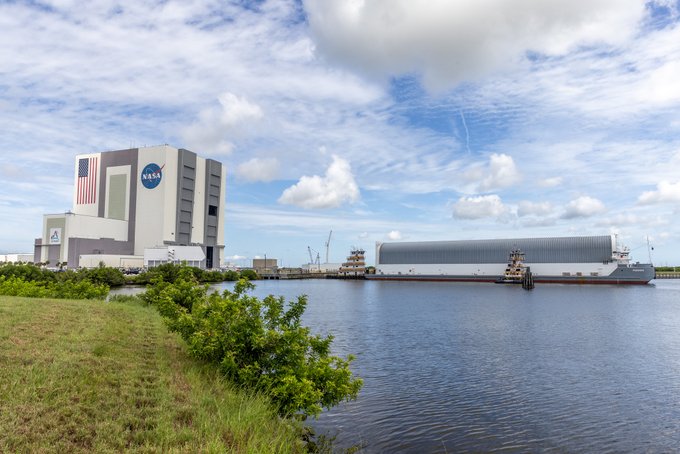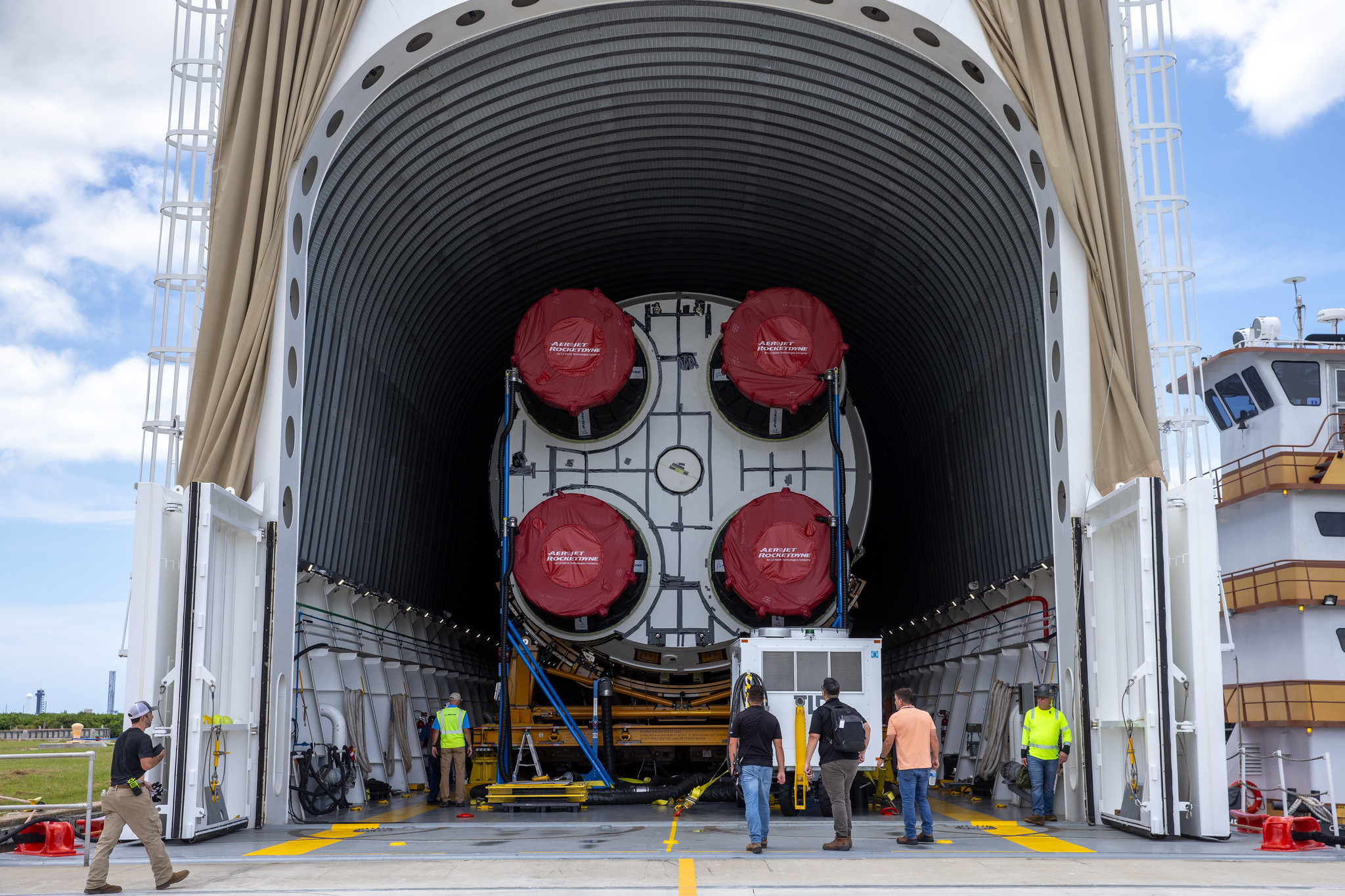Watch NASA's massive Artemis 2 rocket core stage arrive in Florida. Next stop: the moon (video, photos)
"Our team has been chomping at the bit."
An astronaut crew's rocket made its last major journey on Earth before blasting off for the moon.
The core stage of Artemis 2's rocket came to NASA's Kennedy Space Center (KSC) in Florida on Tuesday (July 23). The rocket stage was offloaded from NASA's Pegasus barge, which shipped the rocket stage 900 miles (1,450 km) by water from NASA's Michoud Assembly Facility in New Orleans, in a seven-hour operation aided by remote controlled vehicles known as self-propelled modular transporters.
The 212-foot (65-meter) stage then made the half-mile (0.8 km) journey to NASA's Vehicle Assembly Building where it will eventually be joined to the rest of the Space Launch System rocket for a launch no earlier than September 2025.
Related: NASA rolls giant Artemis 2 moon rocket core off the factory floor for astronaut mission (video)

"Our team has been chomping at the bit trying to get flight hardware back to KSC," Sean Arrieta, KSC's operations manager for integrated operations in exploration ground systems, said in an X livestream Wednesday (July 24).
"We really appreciate everything that the Space Launch System team has been doing to get the vehicle ready and manufactured for us, as well as Boeing, who manufactures the stage. Our team is ready to go," he continued.
"When we get in the VAB, we'll go ahead and set that [core stage] down on some skid beams, where it'll remain for four to five weeks for some pre-processing, and then we'll get ready for its next steps in operations," Arietta said.
Breaking space news, the latest updates on rocket launches, skywatching events and more!
Artemis 2 aims to send four astronauts around the moon in the first human lunar mission since Apollo 17 in 1972. The crew includes NASA commander Reid Wiseman, NASA pilot Victor Glover, NASA mission specialist Christina Koch and Canadian Space Agency (CSA) astronaut and mission specialist Jeremy Hansen. Glover will be the first Black person to leave low Earth orbit, while Koch and Hansen will be the first woman and non-American, respectively.
The mission was delayed nine months in January 2024 in part due to issues with the heat shield identified on the last mission, the uncrewed Artemis 1 that flew in late 2022. Troubleshooting is ongoing on that item, but assembly and training continue with the Orion spacecraft, SLS and other things.

Elizabeth Howell (she/her), Ph.D., was a staff writer in the spaceflight channel between 2022 and 2024 specializing in Canadian space news. She was contributing writer for Space.com for 10 years from 2012 to 2024. Elizabeth's reporting includes multiple exclusives with the White House, leading world coverage about a lost-and-found space tomato on the International Space Station, witnessing five human spaceflight launches on two continents, flying parabolic, working inside a spacesuit, and participating in a simulated Mars mission. Her latest book, "Why Am I Taller?" (ECW Press, 2022) is co-written with astronaut Dave Williams.



